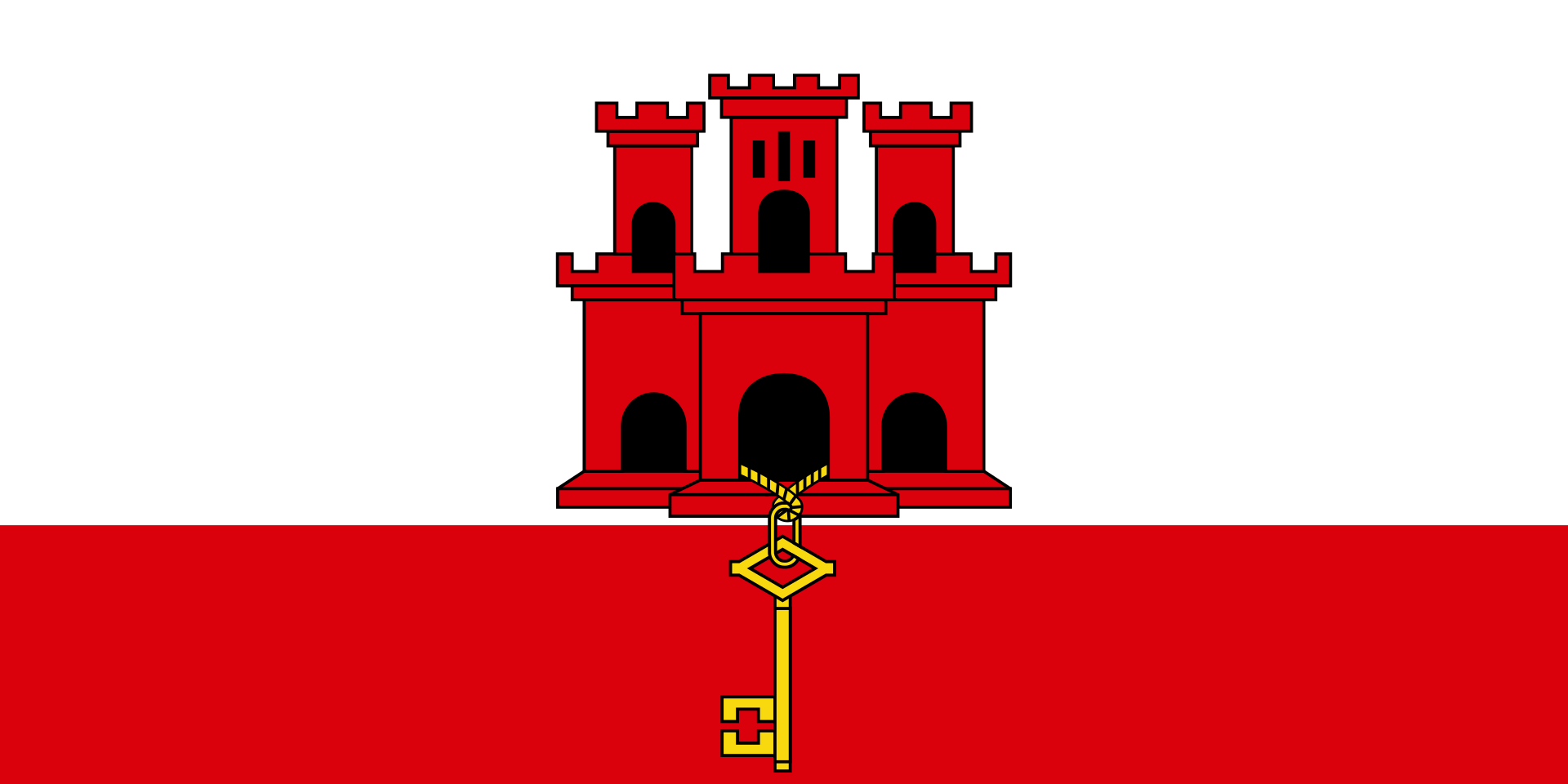Gibraltar

Capital city: Westside
Population: 33,681 (2021 est.)
Land area: 6.8 km²
Official language: English
Legal system: English law and is a mixture of common law and statute
Time zone: GMT+2
Currency: Gibraltar pound
GDP: £2.344 billion (2018)
Main industries: tourism, banking and finance, ship repairing tobacco
Principal exports: petroleum, manufactured goods
Gibraltar is a British Overseas Territory and is a self-governing territory in all matters except defence. Gibraltar occupies the narrow peninsula of Spain’s Southern Mediterranean Sea and is connected to Spain by a sandy isthmus. The territory itself is 5 kilometres long and 1.2 kilometres wide and is represented by the United Kingdom.
Demographic
The general population of Gibraltar as of 2019 stands at 33,701 and consists mostly of local Gibraltarians and the remainder of the residents are families of British military personnel or Moroccans and Indians. The Gibraltarian ethnicity consists of individuals who have descended from mixed Genoese, Anglo-Spanish, Maltese, and Portuguese heritage. English is the official language of the government and educational sectors; however, most Gibraltarians are bilingual and speak both English and Spanish. Similarly, some even speak an English dialect known as Yanito; which is influenced by the Spanish, Genoese, and Hebrew languages.

History
In 1462 Isabella I annexed Gibraltar to Spain in 1501. However, during the War of the Spanish Succession in 1704, Sir George Rooke captured Gibraltar for the British, and Spain formally ceded it to Britain under the terms of the Treaty of Utrecht in 1713. The Spanish made several attempts to retake Gibraltar from Britain, most notably in a protracted but unsuccessful military siege that lasted from 1779 to 1783 but eventually in 1830 Gibraltar became a British crown colony. The opening of the Suez Canal (1869) heightened British determination to keep possession of Gibraltar, since the Mediterranean was the main route to Britain’s colonies in East Africa and southern Asia. In the aftermath of World War II, the British military garrison and naval base have persisted as an integral part of Gibraltar’s economy of the North Atlantic Treaty Organisation (NATO). In 1973, Gibraltar joined the European Economic Community which was later succeeded by the European Union (EU). Gibraltar has remained a source of friction between the Spanish and British governments despite the Trilateral Forum of Dialogue set up in 2004 to ease tensions between the two states.
Gibraltar made their debut at the Commonwealth Games in 1954 in Cardiff, Wales. Since then, Gibraltar has established itself as an important member of the Games family.
Legal System and Government
In 1981 all Gibraltarians were granted full British citizenship and Gibraltarians over the age of 18 and are British civilians of over six months are eligible to vote. The governor of Gibraltar is appointed by the British sovereign and is the head of the Gibraltar Council. The governor must appoint all Council of Ministers, chief and other ministers who combine to become part of a party coalition that gains seats in the Gibraltar Parliament.
The Common Law and rules of equity are applied in Gibraltar and its Parliament has full legislative powers except for foreign affairs and defence. Most enactments are modelled on equivalents of the UK system. The judicial system of Gibraltar is based entirely on the English system, save for a few minor modifications. The Magistrates’ Court is moderated by a Stipendiary Magistrate or Bench of lay Magistrates. The Supreme Court of Gibraltar has a criminal jurisdiction like that of the English Crown Court, and a civil and family jurisdiction that is equivalent to that of the English High Court.
Economy
Due to the lack of space in the Gibraltar peninsula, there is no agriculture for the economy to depend on. Although, there is a light industry regarding tobacco, beverages and canning the main source of income is the provisioning of ships, military personnel, tourism and the re-export of trade. In the recent years of administering and building large-scale expansions of hotels, beaches and casinos this has seen the rise of tourism in Gibraltar. Moreover, port facilities occupy the majority of space in the Western Shore, additionally, cargo vessels often port at Gibraltar and ferries cross to Tangier and Morocco daily.
Trade
In 2019, Gibraltar exports totalled 157 million USD, ranking it as 182nd exporter in the world. During the last five reported years the exports of Gibraltar have decreased drastically from $1.15 billion USD in 2014. The most notable exports are cars ($70mil), passenger and cargo ships ($49.3mil), refined petroleum ($6.68mil), non-fillet Frozen Fish ($4.84mil), and recreational Boats ($4.68mil). The most common destinations for the exports of Gibraltar are Poland (30.6%), Netherlands (26.9%), France (11.4%), Germany (7.6%), and United States (5.7%).
Gibraltar imported $8.43 billion USD worth of products. During the last five reported years the imports of Gibraltar also decreased drastically from $13.3 billion in 2014 to now.
The most notable imports of Gibraltar are refined petroleum ($5.98billion), recreational boats ($621mil), cars ($296mil), coal, tar, and oil ($237mil), and crude petroleum ($232mil). The largest import partners for Gibraltar are Spain (18.6%), United States (12.4%), India (11.6%), Italy (11.5%), and Netherlands (11.1%).
Investment Opportunities
Since 2010, Gibraltar has had a consistent growth rate above 10% (nominal terms) marking it amongst the highest grossing OECD countries. Gibraltar imposes no VAT, capital gains tax, and a minimal 10% corporation tax make the territory ideal for international business. High-net worth, also known as Category 2 individuals, benefit from low-income tax, and no inheritance tax nor estate duty levies.
Besides tourism and marine services sectors that make up the foundation of its economy, recent increase in revenues has come from remote gambling and financial services. Gibraltar is home to well established and renowned companies like KPMG; PWC; Deloitte and Grant Thornton amongst others. All sectors mentioned are still growing with guaranteed profitable returns for those seeking investment opportunities abroad.
Sources
https://thecgf.com/countries/gibraltar
https://www.britannica.com/place/Gibraltar
https://www.lawequitygibraltar.com/gibraltars-legal-system
https://www.gcs.gov.gi/index.php/justice-system/overview